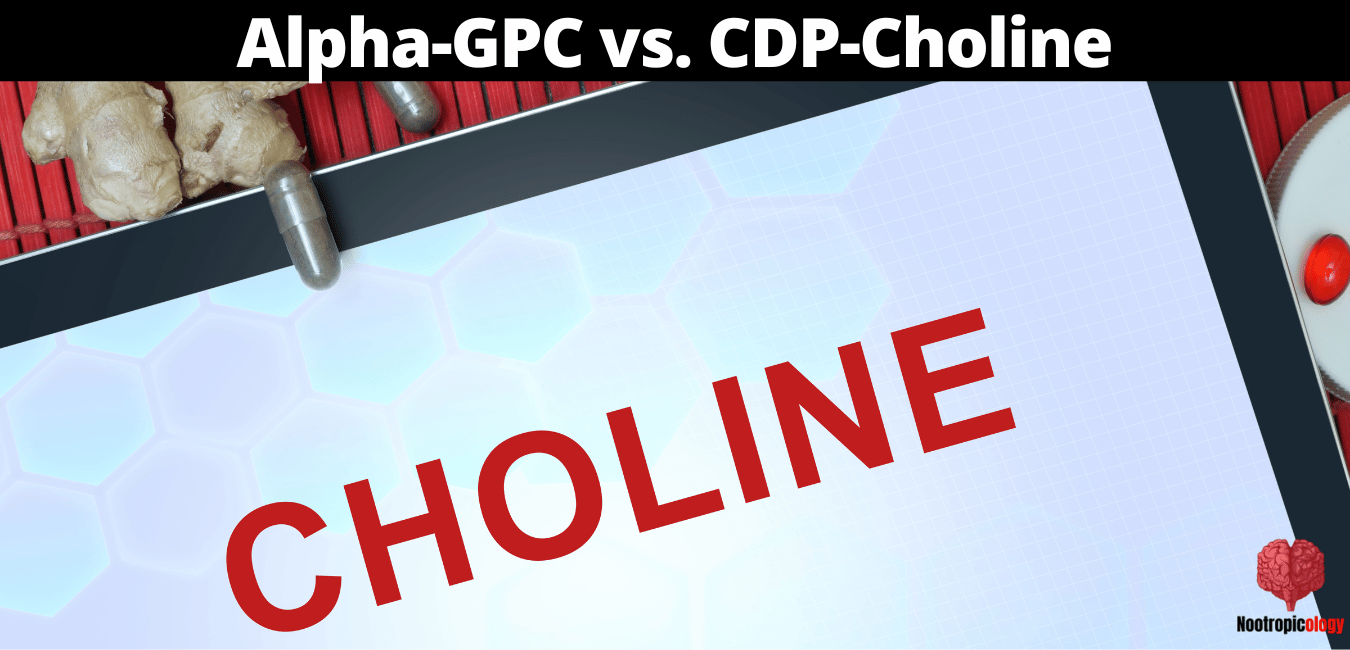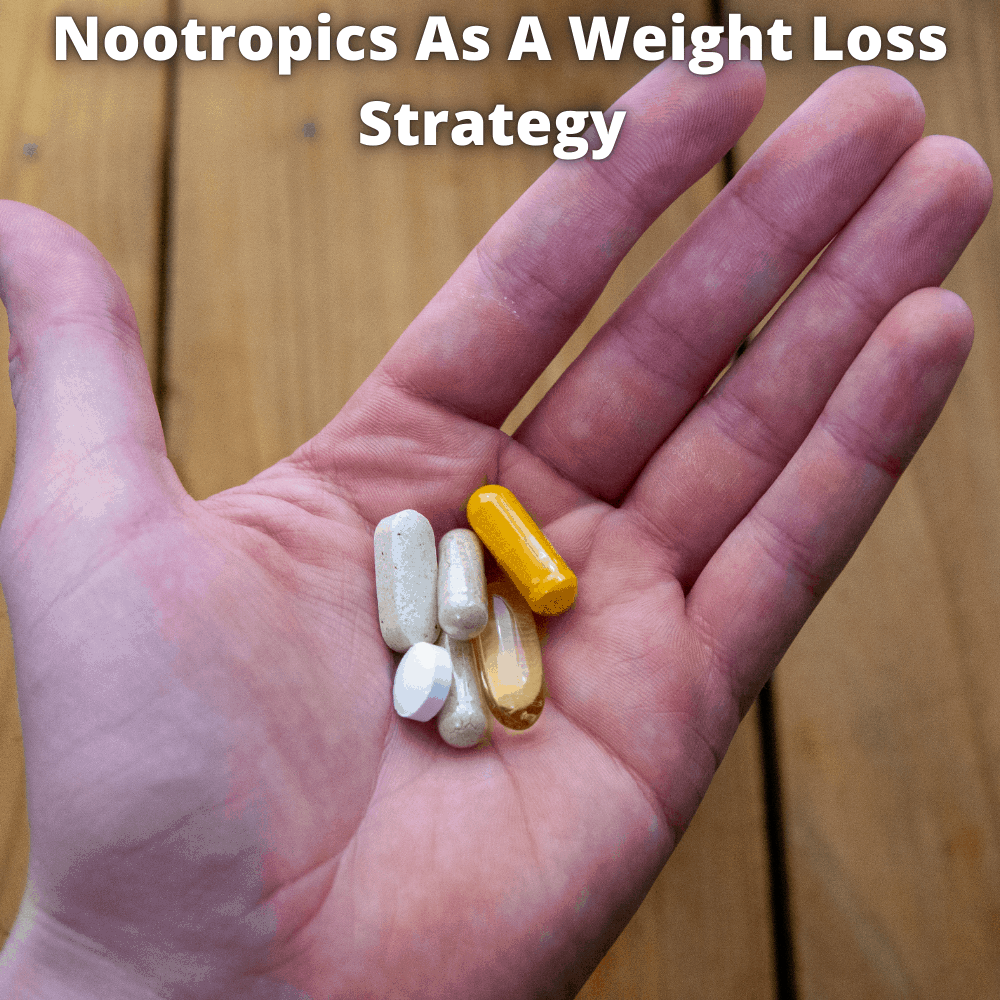
I frequently encounter inquiries about the intricate aspects of dietary supplements, especially those linked to brain health and cognitive function. Two substances that often come up in these discussions are CDP Choline (Citicoline) and Alpha-GPC, both popular supplements in the nootropic community.
CDP Choline, also known as Citicoline, is a naturally occurring compound found in every cell of our body. It's an essential intermediary in the synthesis of phosphatidylcholine, a major component of the brain's grey matter. On the other hand, Alpha-GPC (Alpha-glycerophosphocholine) is a cholinergic compound that is considered to have cognitive-promoting properties and is believed to support cellular membranes.
Choline, the common factor between these two compounds, plays a crucial role in human health. It's an essential nutrient, vital for a variety of physiological functions, including cell structure integrity, cell messaging, fat transport, and metabolism, DNA synthesis, and most importantly, brain and nervous system function.
While both CDP Choline and Alpha-GPC are significant sources of choline, they differ in several key areas, including their mechanisms of action, metabolic pathways, bioavailability, potential health benefits, and side effects. We will delve into these differences throughout this discussion.
Let's take a closer look below.
Understanding Choline and Its Role in the Human Body

Structurally, choline is a quaternary ammonium salt that consists of a nitrogenous base, a hydroxyl group, and three methyl groups. It is categorized as a water-soluble, essential nutrient and is the precursor molecule for the neurotransmitter acetylcholine.
Acetylcholine (ACh), synthesized from choline, is crucial for many functions including muscle control, mood regulation, memory, and other central and peripheral nervous system responses. Choline's role in neurotransmitter synthesis underscores its importance in maintaining optimal cognitive function.
Choline deficiency, although uncommon, can have significant health implications. It can lead to liver dysfunction, muscle damage, and neurological disorders. More subtly, it can contribute to cognitive impairment, including memory and learning deficits, making it essential in diets for both physical and cognitive health.
As we progress, I'll further illustrate the differences between the two prominent choline supplements, CDP Choline and Alpha-GPC, to better inform your nootropic decisions.
In-Depth Look at CDP Choline (Citicoline) as a Nootropic
As mentioned above, CDP Choline, or Citicoline, is a compound that naturally occurs in the body. Its molecular structure consists of cytidine and choline, joined together by a diphosphate bridge. As a nootropic supplement, it provides a potent source of choline and supports the synthesis of important phospholipids, including phosphatidylcholine.
When ingested, CDP Choline is broken down in the intestines into cytidine and choline. These components are then absorbed separately and recombined in the brain, creating citicoline again. Citicoline then donates choline for acetylcholine synthesis and cytidine for RNA and DNA synthesis, supporting brain function and health.
Nootropic benefits associated with CDP Choline include enhanced memory, improved focus, and better overall cognitive function. It's been studied for its potential therapeutic benefits in conditions like Alzheimer's disease, stroke, and glaucoma. Additionally, it has been indicated to support neural repair and reduce inflammation in the brain.[1]
CDP Choline is generally well tolerated, but like any supplement, potential side effects may occur. These can include headaches, nausea, diarrhea, and other gastrointestinal issues. Always consult a healthcare provider before starting any new supplement, especially if you are currently on other medications or have pre-existing health conditions.
Detailed Examination of Alpha-GPC as a Nootropic
Alpha-GPC (Alpha-glycerophosphocholine) is a naturally occurring compound that provides a potent source of choline. Its molecular structure consists of a glycerophosphate molecule bound to a choline molecule, allowing for effective penetration of the blood-brain barrier (BBB).
After ingestion, Alpha-GPC is quickly absorbed in the intestines and transported to the brain where it readily gives up its choline for the synthesis of acetylcholine. The remaining glycerophosphate can be used in the synthesis of phosphatidylcholine, a major component of cell membranes.
The nootropic benefits associated with Alpha-GPC are primarily related to cognitive enhancement and neuroprotection. It's been suggested to improve memory, thinking skills, and learning. It's also been explored in the treatment of Alzheimer's disease, dementia, and stroke, and has potential benefits in physical performance and recovery.[2]
Alpha-GPC is generally considered safe but may occasionally cause side effects like headaches, fatigue, nervousness, nausea, diarrhea, and low blood pressure. As with any supplement, it's essential to consult with a healthcare provider before beginning a regimen, particularly if you have existing health conditions or are on other medications.
Comparative Analysis of CDP Choline (Citicoline) & Alpha-GPC
Both CDP Choline and Alpha-GPC exhibit high bioavailability and efficient absorption. Alpha-GPC, however, has been found to increase serum choline levels more rapidly due to its quicker absorption from the gastrointestinal tract and ready passage across the blood-brain barrier.
While both supplements undergo metabolic pathways that contribute choline to the acetylcholine synthesis process, they do so differently. CDP Choline is hydrolyzed into cytidine and choline before being recombined in the brain. Alpha-GPC directly supplies choline, with the remaining glycerophosphate molecule contributing to phospholipid synthesis.
Both nootropic supplements have demonstrated potential for cognitive enhancement and neuroprotection, although their applications may differ. CDP Choline has been explored more thoroughly in neural repair post-stroke and in treating glaucoma. Alpha-GPC has shown promise in Alzheimer's treatment and enhancing cognitive function in healthy adults, and potentially improving physical performance.
Both compounds are generally well-tolerated, with potential side effects often being mild and gastrointestinal in nature. Alpha-GPC, however, may lower blood pressure, a consideration for those with hypotension.
The standard dosages for these nootropic compounds can vary widely depending on individual needs, the specific cognitive benefits being sought, and the overall health and lifestyle of the user.
For CDP Choline (Citicoline), the typical nootropic dose ranges are as follows:
- For cognitive enhancement in generally healthy individuals: 250-500 mg per day
- For therapeutic usages, such as in the treatment of memory impairments or cognitive decline: 1000-2000 mg per day
Alpha-GPC tends to have slightly lower typical dosage ranges:
- For cognitive enhancement in healthy individuals: 300-600 mg per day
- For therapeutic usages, such as in addressing cognitive decline or enhancing physical performance: 600-1200 mg per day
Again, it's important to emphasize that these are general guidelines and the optimal dosage can vary widely between individuals. Some people may find lower doses to be effective, while others may require higher doses for the same effects.
Additionally, as with any supplement, both of these compounds should be started at the lower end of the dosage range to assess tolerance and effect, with gradual increases as needed and tolerated.
Medical Uses and Potential Therapeutic Applications
Choline supplementation can be beneficial in a variety of conditions, including neurodegenerative diseases, stroke recovery, certain liver diseases, and conditions related to choline deficiency. It is also often used for general cognitive enhancement.[3]
In medical treatment, CDP Choline has been applied in stroke recovery, reducing the risk of further brain damage and enhancing neural repair. Its potential benefits in treating glaucoma and Parkinson's disease have also been explored.[4]
A recent study aimed to evaluate the effectiveness of Alpha-GPC (Choline alphoscerate) in treating cognitive impairments in patients suffering from adult-onset neurological disorders. Despite its long history, there have been discrepancies in the global medical community regarding its authorization and discussions about its effectiveness.[5]
The research involved a comprehensive analysis of relevant studies sourced from PubMed, Web of Science, and Embase. The criteria for consideration included studies evaluating the effects of Alpha-GPC, either alone or combined with other compounds, on adult-onset cognitive impairment. The studies must report on cognition, function, and behavior. The selected studies were then assessed for risk of bias using the Cochrane risk of bias tool.
After meticulous screening of 1,326 studies and 300 full-text articles, the researchers included seven randomized controlled trials (RCTs) and one prospective cohort study in their analysis. The results pointed to significant positive effects of Alpha-GPC. Specifically, when combined with donepezil, it showed significant improvements in cognition, functional outcomes, and behavioral outcomes.
Furthermore, patients who received Alpha-GPC demonstrated significantly better cognition than those who received either a placebo or other medications. The mean difference (MD) in cognitive scores was reported at 3.50, with a 95% confidence interval (CI) of 0.36 to 6.63.
In conclusion, the study presents strong evidence suggesting that Alpha-GPC, either alone or combined with donepezil, improves cognition, behavior, and functional outcomes among patients with neurological conditions associated with cerebrovascular injury.
My Final Thoughts on Alpha-GPC and CDP-Choline
As we wrap up this discussion on Alpha-GPC and CDP Choline (Citicoline), it's important to acknowledge that both these choline-containing compounds have distinct strengths that can serve specific needs in the field of cognitive enhancement and neuroprotection.
Both compounds show promise in supporting cognitive health, enhancing memory, and offering neuroprotective benefits. They act as crucial sources of choline and participate in essential metabolic pathways, impacting brain health and function in notable ways. Whether used for general cognitive enhancement or as part of a therapeutic strategy for neurodegenerative conditions, both Alpha-GPC and CDP Choline have scientific backing that underscores their potential.
However, remember that while they have similarities, they also have key differences. Alpha-GPC is rapidly absorbed, increasing serum choline levels swiftly and has shown promise in cognitive enhancement in healthy adults and Alzheimer's treatment. CDP Choline, on the other hand, has a unique metabolic pathway and has been extensively studied for its potential in stroke recovery and glaucoma treatment.
In my personal exploration and understanding of cognitive enhancers, I've found both Alpha-GPC and CDP Choline (Citicoline) to be effective and unique in their own ways.
Alpha-GPC, with its swift absorption and marked influence on serum choline levels, has shown promise not only in my day-to-day cognitive enhancement but also in scientific studies relating to Alzheimer's treatment.
On the other hand, CDP Choline, with its distinct metabolic pathway, has been an interesting component of my health regimen. My personal experience aligns with research suggesting its potential in supporting brain health, particularly in areas like stroke recovery.
However, I should stress that individual experiences can vary greatly due to our unique biochemistry. As always, consult with a healthcare provider before starting any new supplement regimen.
All in all, Alpha-GPC and CDP Choline both offer compelling benefits. Choosing between the two, or considering a combination, depends largely on individual health goals, tolerance, and medical history. My journey continues to evolve as I learn more about these fascinating compounds and their effects on cognitive health.
- Cacabelos, R et al. “Therapeutic effects of CDP-choline in Alzheimer's disease. Cognition, brain mapping, cerebrovascular hemodynamics, and immune factors.” Annals of the New York Academy of Sciences vol. 777 (1996): 399-403. doi:10.1111/j.1749-6632.1996.tb34452.x
- Bellar, David et al. “The effect of 6 days of alpha glycerylphosphorylcholine on isometric strength.” Journal of the International Society of Sports Nutrition vol. 12 42. 17 Nov. 2015, doi:10.1186/s12970-015-0103-x
- Jadavji, Nafisa M et al. “B-vitamin and choline supplementation increases neuroplasticity and recovery after stroke.” Neurobiology of disease vol. 103 (2017): 89-100. doi:10.1016/j.nbd.2017.04.001
- Iulia, Chitu et al. “Citicoline - a neuroprotector with proven effects on glaucomatous disease.” Romanian journal of ophthalmology vol. 61,3 (2017): 152-158. doi:10.22336/rjo.2017.29
- Sagaro, Getu Gamo et al. “Activity of Choline Alphoscerate on Adult-Onset Cognitive Dysfunctions: A Systematic Review and Meta-Analysis.” Journal of Alzheimer's disease : JAD vol. 92,1 (2023): 59-70. doi:10.3233/JAD-221189
source https://nootropicology.com/choline-vs-alpha-gpc/

No comments:
Post a Comment